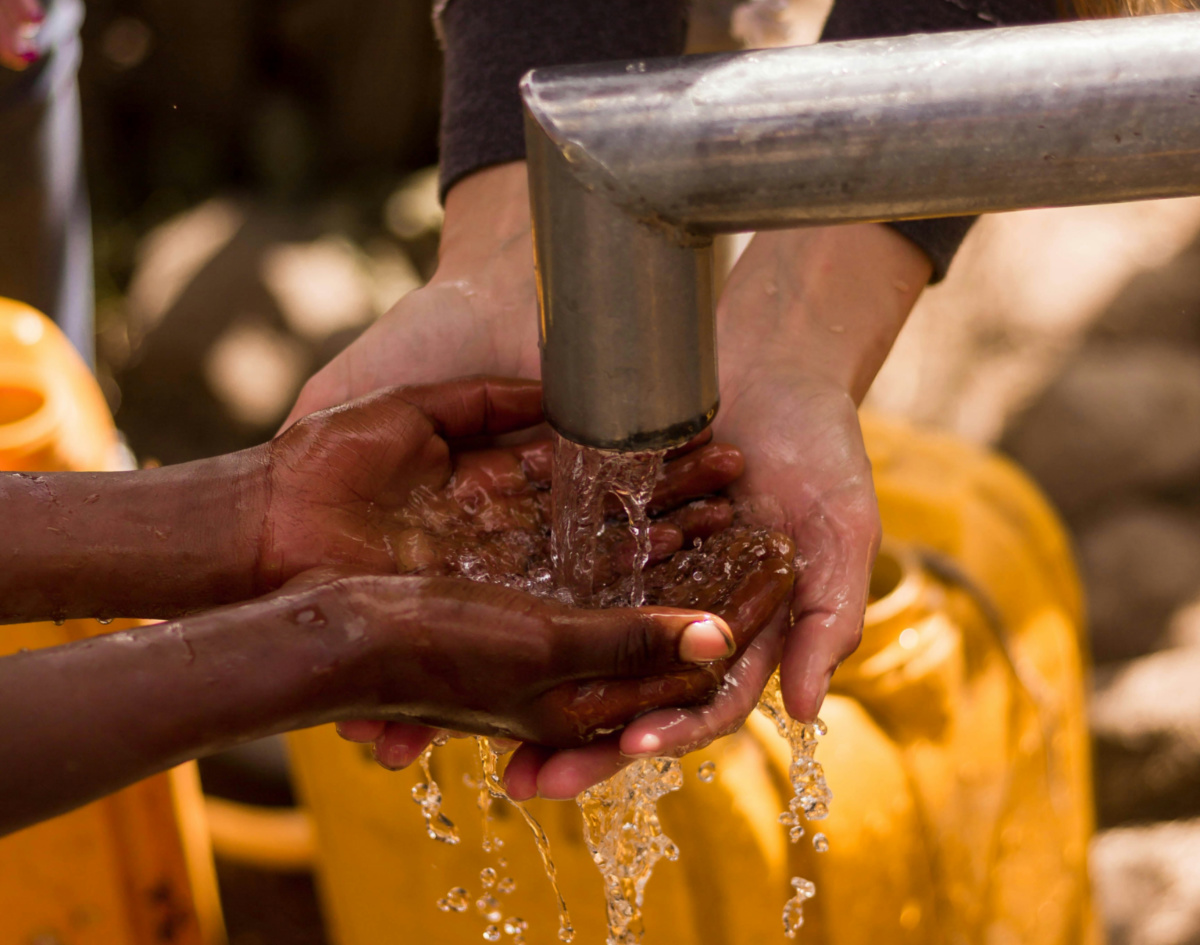
In an article first published on Religion News Service, SUSAN BARNETT, founder of Faiths for Safe Water, says clean water is a conduit of care and love…
Earth Day is no longer the one day a year we dedicate to thinking about the health of our planet. The urgency of climate change has made concern about the environment a daily consideration. But when thinking of the health of the Earth, we must remember that all our health depends on the health of our water.
Water is also of deep concern to our world’s faiths, as it is the only symbol every world religion shares. Water cleanses, sanctifies and blesses rituals around the world. But it is more than a symbol: clean water is a conduit of care and love.

PICTURE: Liz Martin/Unsplash
So many problems in healthcare can be traced to unsafe water, a leading preventable cause of early childhood malnutrition, cognitive stunting and death. For women and girls in the most marginalised parts of the world, it’s a lifelong issue. A girl will often drop out of school when she hits puberty because she has no sanitation facilities to meet her needs. In many cultures it is the job of women to wake each day before dawn to collect water, knowing that it may bring illness to their families.
Most crucially, lack of access to sustainable water, sanitation and hygiene – WASH – is a fundamental problem in tens of thousands of health clinics and hospitals all around the world.
“So many problems in healthcare can be traced to unsafe water, a leading preventable cause of early childhood malnutrition, cognitive stunting and death.”
In the most remote places, pregnant women often come in from the countryside as they near labor to give birth at healthcare centres that have no clean water and often must bring their own. They give birth on unsanitary tables and can’t effectively wash their hands and bodies before cradling and nursing their newborns. Predictably, infections are a leading cause of preventable death for mothers and newborns across low-resourced countries.
These conditions also impact nurses, midwives and cleaners, making it all the more difficult for them to treat women with kindness and dignity when they themselves are working in such undignified and dangerous circumstances.
Faith workers have a particular role to play in making WASH more available to more people. The Catholic Church, the largest unified provider of essential healthcare in the world, offers a compelling model.
In Nigeria, Daughters of Charity, a nearly 400-year-old order of Catholic sisters, distribute “clean birth kits” to women in their third trimester of pregnancy, along with basic pregnancy care. The kits contain items to help with a hygienic birth — plastic sheeting, gloves, gauze, alcohol swabs, soap, a razor blade, as well as a baby blanket and cap to keep the newborn warm.
In a country with the second highest maternal and newborn death rates in the world, and where preventable infection is the second leading cause of death, Daughters of Charity has raised the maternal and newborn survival rate to almost 100 per cent.
But no kit can contain ample clean water, the dignity of a toilet or a way to cleanse one’s body after giving birth. Focusing on that need, the Vatican’s Dicastery for Promoting Integral Human Development reached out to bishops in 2021 to seek interest in a pilot project to improve water and sanitation conditions. One hundred and fifty healthcare facilities in 23 countries were selected and have received technical assistance from Catholic Relief Services, Caritas Internationalis, Daughters of Charity and Camillian Sisters. So far all 150 facilities have undergone assessments to identify WASH problems that can be reversed with little or no funding.
Though these projects cost as little as $1,800, other necessary steps can require up to $US250,000. Nearly $US2.6 million in private donations have been raised so far, spread across half of the healthcare facilities, but more funds are needed. But what’s needed most is success: With improved health outcomes, better working conditions and ongoing advocacy, donors and Catholic healthcare systems will be encouraged to broaden this global commitment and inspire other faith-based health efforts to pursue WASH improvements.
We rely on our readers to fund Sight's work - become a financial supporter today!
For more information, head to our Subscriber's page.
And success is possible. At World Water Day in March 2010, 65 per cent of the world’s population had access to safe and sustainable drinking water. Today it’s 75 per cent. New global agreements, such as a recent United Nations Resolution to get WASH and electricity into every healthcare facility, was recently signed by every member state. That’s a powerful commitment every one of our faith-based global health organisations can utilise to ramp up focus, partnerships and sustainable progress.
The spread of disease and poor health, as well as poverty and food insecurity, is inevitable without clean water. More faith voices are needed, near and far, for us to create pressure on public and private decision-makers to prioritise and budget for WASH. We can make our water measure up to the symbol of life it is meant to be.
Susan K Barnett, who heads Cause Communications, is the founder of Faiths for Safe Water, which advocates for access to water and sanitation security.






